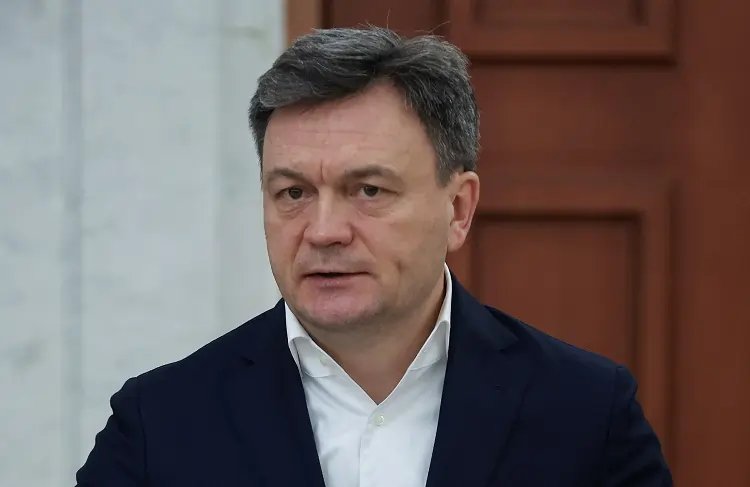Moldova sacks energy minister over failure to tackle crisis


By Alexander Tanas
CHISINAU (Reuters) -Moldova’s president on Thursday sacked Energy Minister Victor Parlicov and the prime minister called for two other senior energy officials to resign for failing to tackle an energy crisis in the small former Soviet republic.
Prime Minister Dorin Recean also said he would ask parliament to impose a state of emergency in the energy sector.
Ukraine has repeatedly said it would not extend its gas transit agreement with Russia after it expires on Dec. 31, raising the risk of a cut-off of Russian gas to several eastern European countries, including Moldova.
Moldova’s Moscow-backed breakaway Transdniestria region is particularly dependent on Russian gas.
“The resignations are the first stage of correcting the crisis situation. I had full confidence in Minister Parlicov. But he did not ensure the purchase of gas,” Recean said at a press conference. The presidential decree sacking Parlicov followed.
Parlicov, who had held talks on gas supplies last week in Russia with the head of gas giant Gazprom, said he knew his position was temporary and he was leading the ministry “as long as I was trusted.”
He told a press conference that the importance of gas was overstated in Moldova compared to electricity, but said he did “not want to make a scandal” out of his dismissal.
He had been told of his dismissal minutes before the prime minister spoke, though he had anticipated his departure.
“I am no victim. I will now have plenty of free time while others will be subject to stress,” he said.
Recean also called for the resignation of state energy company Energocom head Victor Binzari and Moldovagaz supervisory board member Sergiu Tofilat for failing to buy and store enough volumes of gas at favourable prices.
STATE OF EMERGENCY
The government plans to ask parliament to impose a preventative state of emergency starting Dec. 16, he added.
A state of energy emergency is necessary to manage the risks of energy supply disruptions, at least partially, and to allow the government to impose certain actions, including restricting energy exports,” Recean added, citing uncertainty over gas supplies.
Moldova has received about 2 billion cubic metres of gas per year from Russia through Ukraine and since 2022, Transdniestria and Chisinau have agreed that all Russian gas received by Moldova will go to the breakaway region.
Transdniestria also has a large power plant fueled by Russian gas and Chisinau, in turn, buys electricity from the region at a relatively low fixed price.
Recean urged state bodies responsible for energy to prepare for various scenarios, including cuts of power supply from the power plant in Transdniestria.
Moldova has previously said that cutting off supplies through Ukraine is a “very realistic” scenario, and that if Kyiv stops such transit, gas could be delivered via the TurkStream pipeline to Turkey and then via Bulgaria and Romania to Moldova.
(Reporting by Alexander Tanas, writing by Yuliia Dysa and Pavel Polityuk; Editing by Toby Chopra, Gareth Jones, Barbara Lewis, Ron Popeski and Mark Porter)
Gas transit refers to the transportation of natural gas through pipelines from one country to another, often involving agreements for the supply and pricing of gas.
An energy crisis occurs when the demand for energy exceeds the supply, leading to shortages, price spikes, and potential economic disruptions.
An energy minister is responsible for overseeing a country's energy policy, including the management of energy resources, regulation of energy markets, and ensuring energy security.
Explore more articles in the Top Stories category











